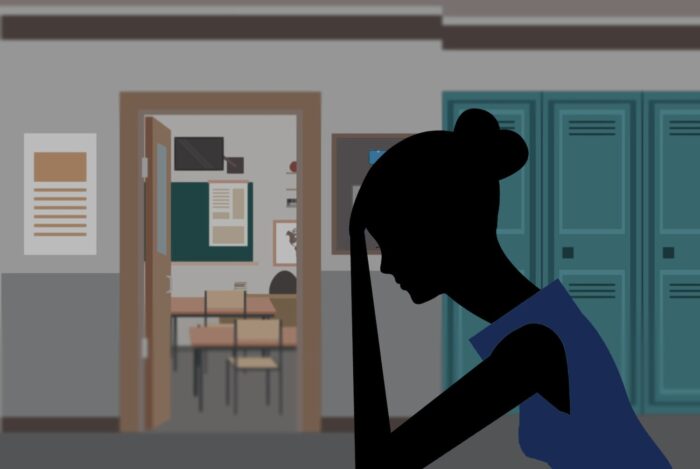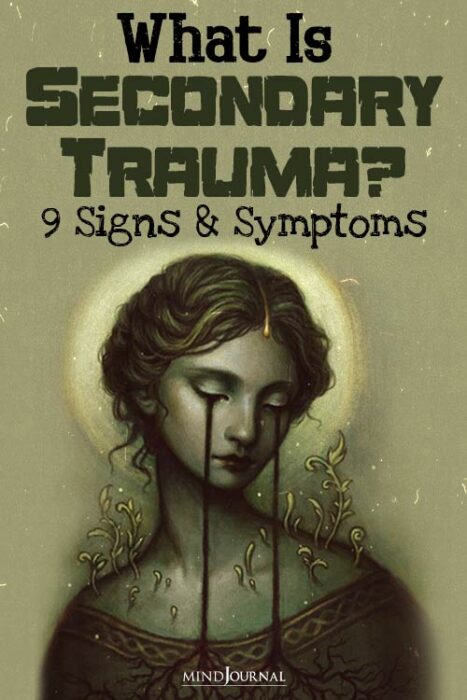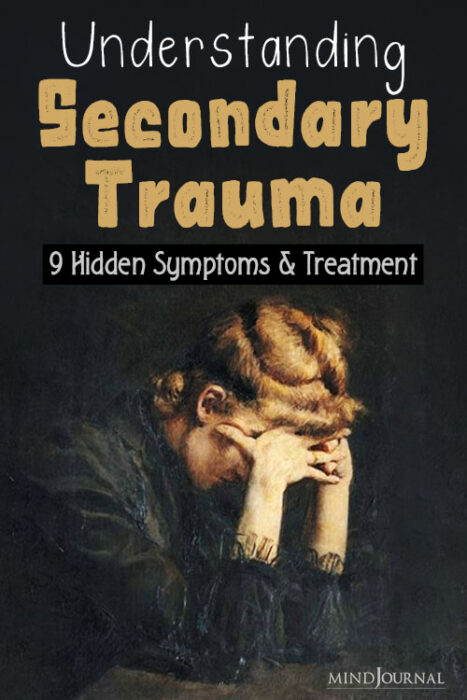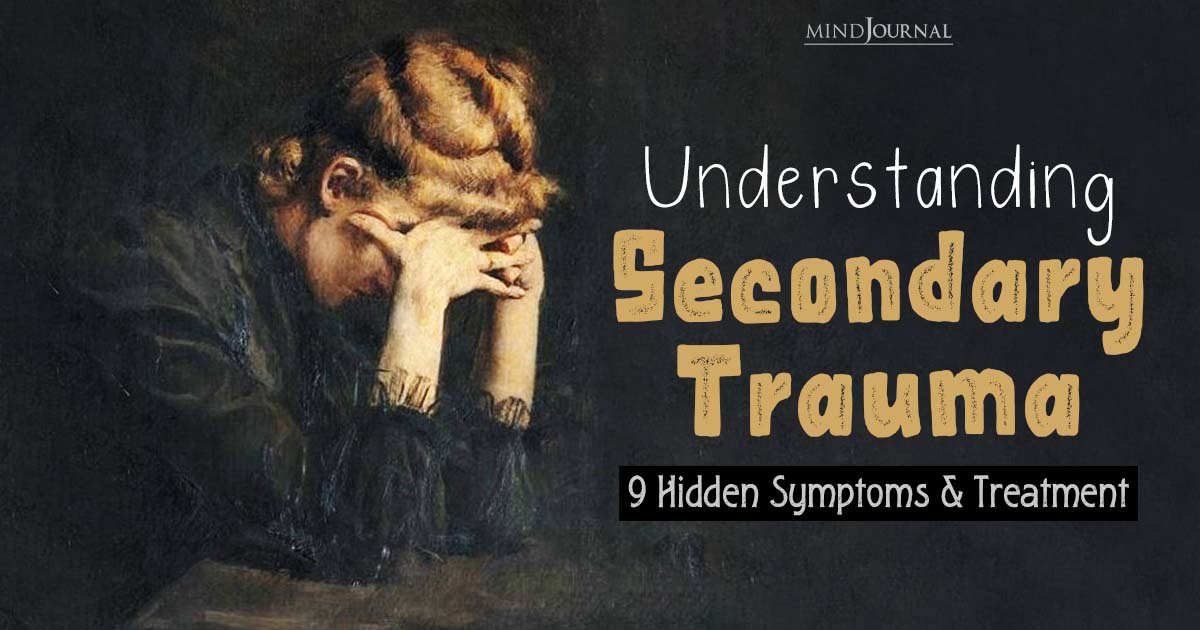Hearing about other people’s tough experiences can cause something called secondary trauma. Let’s unpack what it is and how it can sneakily affect us.
Traumatic experiences forced people to think about what is secondary trauma. Violence such as tragic incidents of gun violence in the US which included school shootings, have become distressingly common in America.
The constant replaying of these events over television and social media platforms led to a phenomenon known as secondary trauma.
What Is Secondary Trauma?
According to Sabrina Romanoff, Psy.D., a licensed clinical psychologist based in New York City and member of the Forbes Health Advisory Board, secondary trauma arises from experiencing a traumatic event indirectly. This often occurs through hearing details or witnessing the aftermath of a traumatic experience.
Causes of this type of trauma
1. Traumatic Experience
The primary catalyst of trauma is exposure to traumatic events or circumstances indirectly, typically through hearing about or witnessing the experiences of others who have directly experienced trauma.
2. Empathetic Connection:
Developing a strong emotional bond or connection with individuals who have experienced trauma can increase the likelihood of experiencing this kind of trauma.
Read more here: Meditation As A Spiritual Practice: Spiritual Meditation Meaning And Benefits
3. Professional Roles:
Professionals working in fields such as healthcare, emergency response, or social services may frequently encounter traumatized individuals, making them more susceptible to this type of trauma.
4. Media Exposure:
Continuous exposure to graphic or distressing media content related to traumatic events can contribute to the development of secondary trauma.
5. Personal History:
Individuals with a history of their own traumatic experiences may be more vulnerable to experiencing secondary trauma when exposed to similar events.
6. Cumulative Effect:
The accumulation of witnessing or hearing about multiple traumatic events over time can gradually contribute to the development of secondary trauma.
7. Lack of Support:
Limited access to emotional support or inadequate self-care practices can exacerbate the impact of indirect exposure to trauma, increasing the risk of secondary trauma.
The development of this trauma is influenced by both the frequency and level of detail one witnesses regarding a traumatic event.
The more often an individual is exposed to such events and the greater the number of specific details they encounter, the higher the likelihood of experiencing secondary trauma which makes secondary trauma treatment tougher.

Secondary Trauma Symptoms
Here are some common trauma symptoms associated with secondary trauma:
- Emotional Exhaustion
- Increased Empathy
- Intrusive Thoughts
- Avoidance Behavior
- Emotional Numbing
- Sleep Difficulties
- Hypervigilance
- Relationship Strain
- Decreased Self-Esteem
It is essential to remember that experiencing these symptoms does not mean an individual is weak or incapable. Seeking support, practicing self-care, setting boundaries, and seeking professional help can be crucial in managing and mitigating the symptoms of secondary trauma.
Therapeutic techniques, including eye movement desensitization and reprocessing (EMDR), somatic experiencing, trauma-focused cognitive behavioral therapy (CBT), as well as trauma-informed yoga and mindfulness, have been recommended by Dr. Courtney and other experts as strategies for individuals for coping with secondary trauma.
Suggestions such as spending time in nature, making room for enjoyable activities, and engaging in journaling, meditation, and deep breathing were also advised by Dr. Courtney as they will help you in coping with secondary trauma. Coping with secondary trauma requires a proactive approach to self-care and emotional well-being.
Now you know what is secondary trauma, let’s know about secondary trauma treatment
Secondary Trauma Treatment
The treatment for secondary trauma typically involves a multi-faceted approach that addresses the emotional, psychological, and physical impact of vicarious trauma. Here are some common secondary trauma treatment methods used:
1. Therapy:
Seeking therapy from a mental health professional experienced in trauma work is crucial. Therapies like Eye Movement Desensitization and Reprocessing (EMDR), Trauma-Focused Cognitive Behavioral Therapy (TF-CBT), or Psychodynamic Therapy can help process the effects of secondary trauma and develop coping mechanisms.
2. Self-Care and Stress Management:
Engaging in regular self-care activities is essential. This may include exercise, relaxation techniques, hobbies, spending time with loved ones, and setting healthy boundaries between work and personal life.
3. Support Systems:
Building a support network of trusted colleagues, friends, or support groups can provide validation, understanding, and a safe space to share experiences.
Read more here: How Emotional Support Animals Can Help with Mental Health
4. Mindfulness and Meditation:
Practicing mindfulness and meditation can help regulate emotions, reduce stress, and increase self-awareness. This includes deep breathing exercises, progressive muscle relaxation, and guided imagery.
5. Education and Training:
Increasing knowledge about trauma and its effects can help individuals understand and normalize their experiences. Attend workshops, seminars, or online courses on trauma-informed care.
6. Self-reflection and Journaling:
Reflecting on emotions, thoughts, and experiences through journaling can promote self-awareness, provide an outlet for processing, and identify patterns or triggers.
7. Healthy Lifestyle:
Maintaining a healthy lifestyle with proper nutrition, regular exercise, and sufficient sleep can support overall well-being and resilience in managing secondary trauma.
It’s important to consult with a qualified mental health professional to determine the most appropriate treatment plan based on individual needs and circumstances. Remember, seeking help is a sign of strength and a vital step towards healing.
Share your thoughts in the comments below!










Leave a Reply
You must be logged in to post a comment.